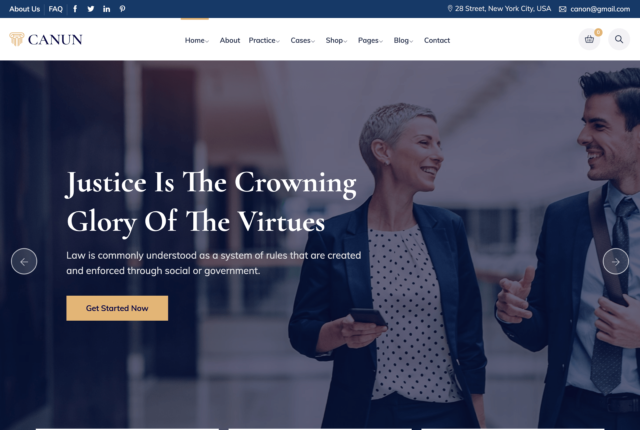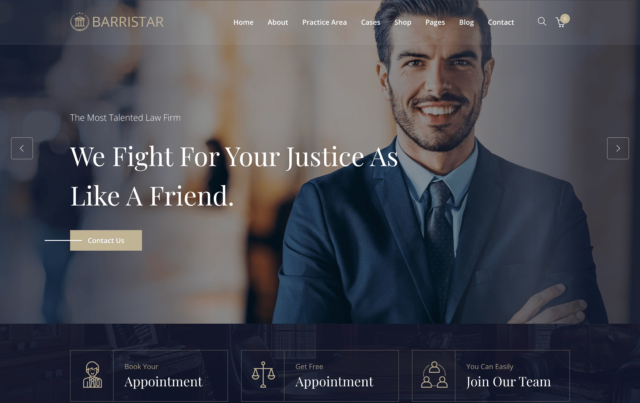In most cases, marketing has largely shifted online, with SEO, social media, and email campaigns dominating the conversation. For law firms, digital marketing offers measurable ROI, precision targeting, and scalability that print media struggles to match. However, dismissing print marketing entirely may be shortsighted. While it no longer holds the same weight as digital marketing, print can still provide unique value when used strategically.
In this article, we’ll explore the evolving role of print marketing for law firms, its advantages, limitations, and how it can complement digital strategies to create a well-rounded marketing plan.
The Unique Value of Print Marketing
Print marketing has an enduring appeal that digital methods sometimes lack. Here are some ways in which print marketing still provides value for law firms:
1. Tangible Presence
Print materials like brochures, business cards, and direct mail create a physical, lasting impression. A high-quality brochure handed out at a networking event can feel more personal and memorable than an email that might get lost in a crowded inbox.
2. Credibility and Prestige
Printed materials often convey professionalism and credibility. A feature in a respected legal magazine or a branded newsletter mailed to clients can enhance your firm’s reputation in ways digital ads might not.
3. Targeting Local Audiences
For law firms focused on local clients, print ads in community newspapers, flyers in local businesses, or sponsorships in printed event programs can be an effective way to reach nearby audiences.
4. Reaching Less Tech-Savvy Clients
Not all potential clients are active online. Older demographics or those less familiar with digital platforms may respond better to print marketing efforts.
5. Complementing Digital Strategies
Print can amplify digital marketing by directing clients to your website or social media channels. Including a QR code or personalized URL on print materials can bridge the gap between offline and online marketing.
Limitations of Print Marketing
While print marketing still has its uses, it also comes with significant drawbacks:
1. Higher Costs
Printing and distributing physical materials can be expensive, especially compared to the cost-effectiveness of digital campaigns.
2. Limited Reach
Print campaigns often have a more localized or niche reach, making it difficult to scale your efforts.
3. Lack of Measurability
Tracking the ROI of print marketing is challenging. Unlike digital campaigns, where you can measure clicks, conversions, and engagement, print relies on indirect metrics like inquiries or referrals.
4. Decreasing Consumer Attention
In a fast-paced, digital-first world, many people are less inclined to engage with print materials unless they’re highly relevant or visually appealing.
How Law Firms Can Use Print Marketing Effectively
If you decide to incorporate print marketing into your strategy, focus on areas where it excels:
1. Invest in High-Quality Materials
First impressions matter. If you’re creating brochures, business cards, or direct mail, ensure they’re professionally designed and printed on high-quality materials. A polished appearance reflects your firm’s professionalism and attention to detail.
2. Target Specific Events and Audiences
Print marketing works best in targeted settings, such as:
- Networking Events: Distribute brochures or business cards at legal conferences, local business expos, or charity events.
- Community Outreach: Sponsor a local event or place ads in community newsletters to connect with local clients.
- Professional Publications: Feature your firm in niche legal magazines or journals to reach other professionals and potential referral sources.
3. Incorporate Call-to-Actions
Ensure your print materials have a clear call-to-action (CTA) that drives engagement. Examples include:
- Visiting your website
- Calling for a free consultation
- Scanning a QR code for a downloadable legal guide
4. Use Direct Mail Strategically
Direct mail campaigns can still be effective when targeted carefully. For example:
- Mail postcards to local businesses introducing your employment law services.
- Send newsletters to past clients to keep your firm top-of-mind for referrals or repeat business.
5. Combine with Digital Campaigns
Integrate print and digital marketing to create a cohesive strategy. For instance:
- Use a print ad to promote a webinar and direct readers to register online.
- Include testimonials or case results on print materials and encourage readers to visit your website for more information.
Comparing Print and Digital Marketing
To understand the role of print marketing in your overall strategy, consider a side-by-side comparison:
| Aspect | Print Marketing | Digital Marketing |
|---|---|---|
| Cost | Higher for production and distribution | Lower with better scalability |
| Reach | Localized or niche audiences | Global reach, highly targeted |
| Measurability | Difficult to track ROI | Easily trackable with analytics |
| Engagement | Tangible and personal | Instant and interactive |
| Speed | Longer lead time for production | Immediate setup and execution |
While digital marketing outperforms print in scalability and tracking, print remains valuable for creating personal connections and reinforcing credibility.
Final Thoughts
Is print marketing still relevant for law firms? The honest answer is: it depends on how you use it. While it’s no longer the dominant marketing channel, print still offers unique benefits when incorporated strategically. Rather than choosing one over the other, law firms should aim for a balanced approach, using print marketing to complement their digital efforts.
By leveraging the tangibility and credibility of print alongside the efficiency and reach of digital, your firm can build a multifaceted marketing strategy that resonates with diverse audiences and drives results.
The key to success lies in knowing your audience, setting clear goals, and integrating print as a supporting tool within your broader marketing plan. With thoughtful execution, print marketing can remain a valuable part of your law firm’s branding and client outreach.








